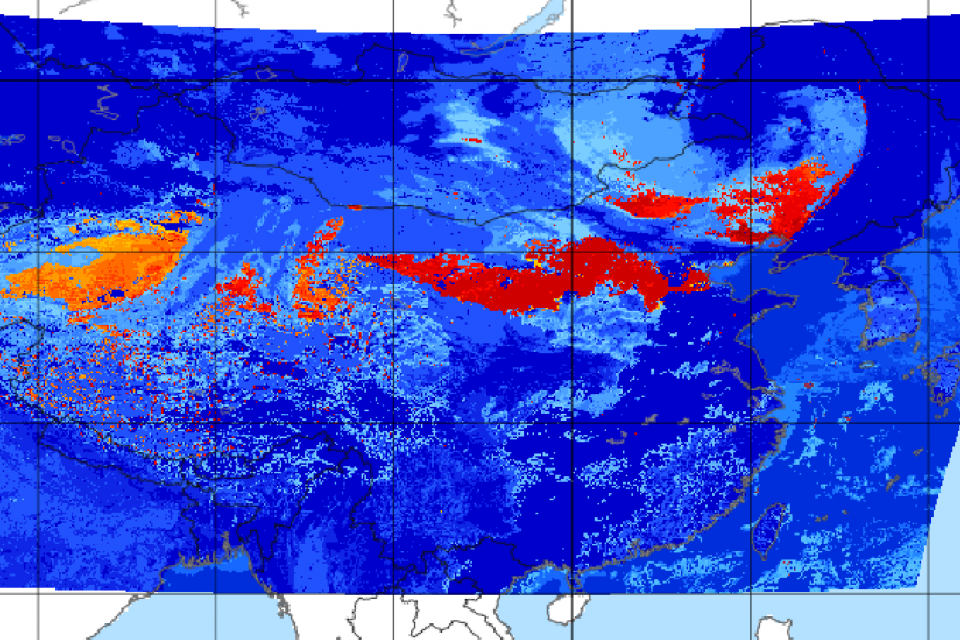Finding Solutions to the Climate Change Crisis One Dataset at a Time
According to the United Nations, the world is on the brink of a climate catastrophe. Increased heat waves, droughts, and floods are already affecting billions of people around the world and causing irreversible changes in global ecosystems.
IEEE’s mission is to advance technology for the benefit of humanity, and today, there is no greater threat to humanity than climate change. This is why IEEE is focused on finding solutions to this challenge -- diverting resources to this cause, creating committees, and making research available so the global technical community can do what it does best – innovate for the greater good.
Scientists, engineers, and researchers are critical to finding solutions and slowing the impacts of climate change. Innovation initiatives such as the electrification of transportation, transitioning from oil production to renewable power, and reinforcing and modernizing the power grid to be optimized for low carbon electricity are a few major initiatives spearheaded by IEEE members.
IEEE is a catalyst for enabling effective steps in combating climate change. By bringing together brilliant engineering minds from across the world, IEEE is uniquely positioned to facilitate discussions and share knowledge that promotes solutions.
This mission extends to IEEE DataPort, IEEE’s data platform that enables the storage, sharing and management of research data. By highlighting existing climate change datasets and encouraging the global research community to upload climate change datasets to IEEE DataPort, researchers and the technical community around the world can access and leverage valuable climate change research data.
In 2023, IEEE DataPort hosted a dataset upload contest dedicated to research focused on evaluating the impact of and finding solutions for climate change. The contest was designed to encourage authors and researchers to bring their climate change research to the forefront of the global technical community. The contest had a first place prize of $10,000. The two runners-up received $5,000 each. The cash prizes were funded by a grant from the IEEE Foundation's Humanitarian Activities Fund.
Here's a look at the winning datasets:
The first place dataset titled "Large-Scale Dust Storm Database Based on Satellite Images and Meteorological Reanalysis Data" features multi-channel and dust label data from the Fengyun-4A (FY-4A) geosynchronous orbiting satellite and Meteorological Reanalysis data (LSDSSIMR), with a temporal resolution of 15 minutes and a spatial resolution of 4 km from March to May of each year during 2020–2022. You can view the dataset here.
There were two runners up in this contest. The first runner up was the dataset titled "Social Media Big Dataset for Research, Analytics, Predication, and Understanding the Global Climate Change Trends." This dataset compiled social media big data on climate change-related topics from a network of Reddit communities, including greenhouse gas emissions, changing weather patterns, ocean health, sea levels, water scarcity, flooding, saltwater intrusion, wildfires, polar ice measurements, and their impacts on specific populations. The dataset has far-reaching implications for understanding and addressing climate change, spanning from public awareness and sentiment analysis to predicting climate-related events and informing policy decisions. You can view the dataset here.
The second runner up was the dataset titled "Real-Time Landslide Dataset of Mawiongrim, Meghalaya, India" and used data from Mawiongrim, Meghalaya, India, an active landslide zone, to predict future landslides. The proposed model used a bi-directional LSTM to capture the temporal patterns of the input data collected from a long-term real-time monitoring system set up in the area. The model was trained using a dataset composed of various landslide-related characteristics, such as topography, rainfall, hydrological and soil properties. You can view the dataset here.
Around the world, data is being collected and distributed for some of the most challenging climate change issues. Here are a few more examples of climate change datasets available on the IEEE DataPort platform:
IEEE DataPort is supporting the IEEE Climate Change initiative to encourage the community to focus its collective efforts on the issues surrounding climate change. We encourage all researchers to upload their valuable datasets to IEEE DataPort to help the research community develop solutions to the climate change crisis.
- 3553 reads














